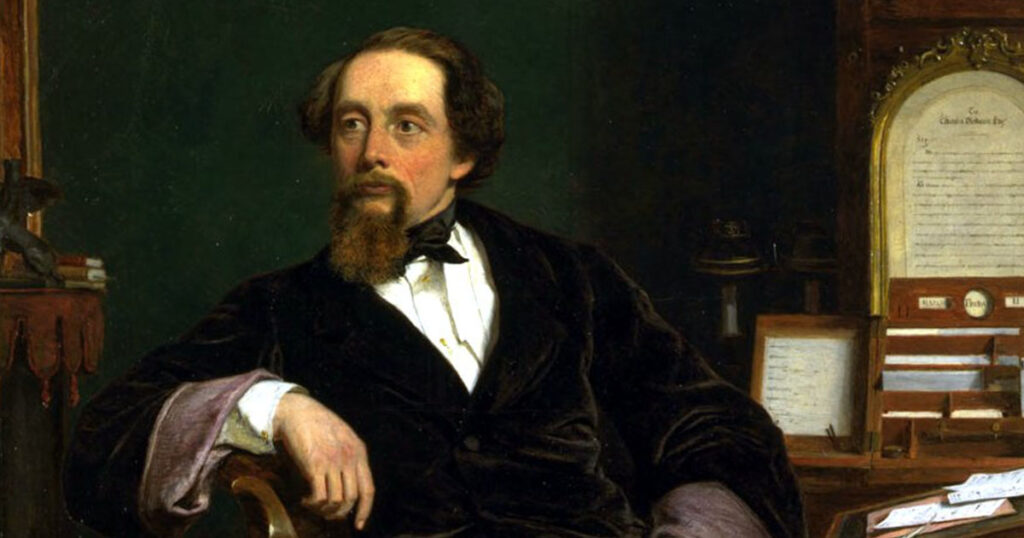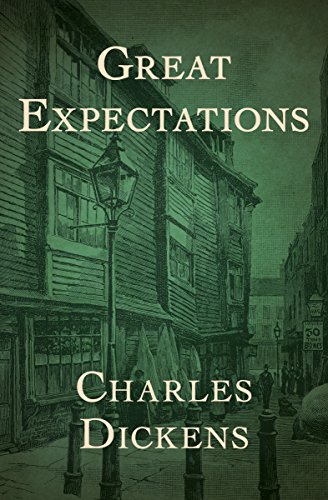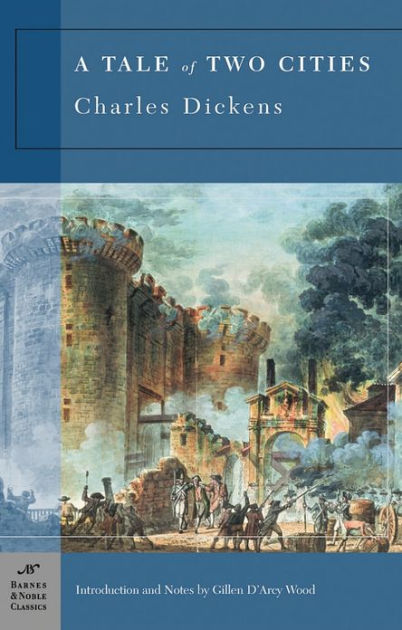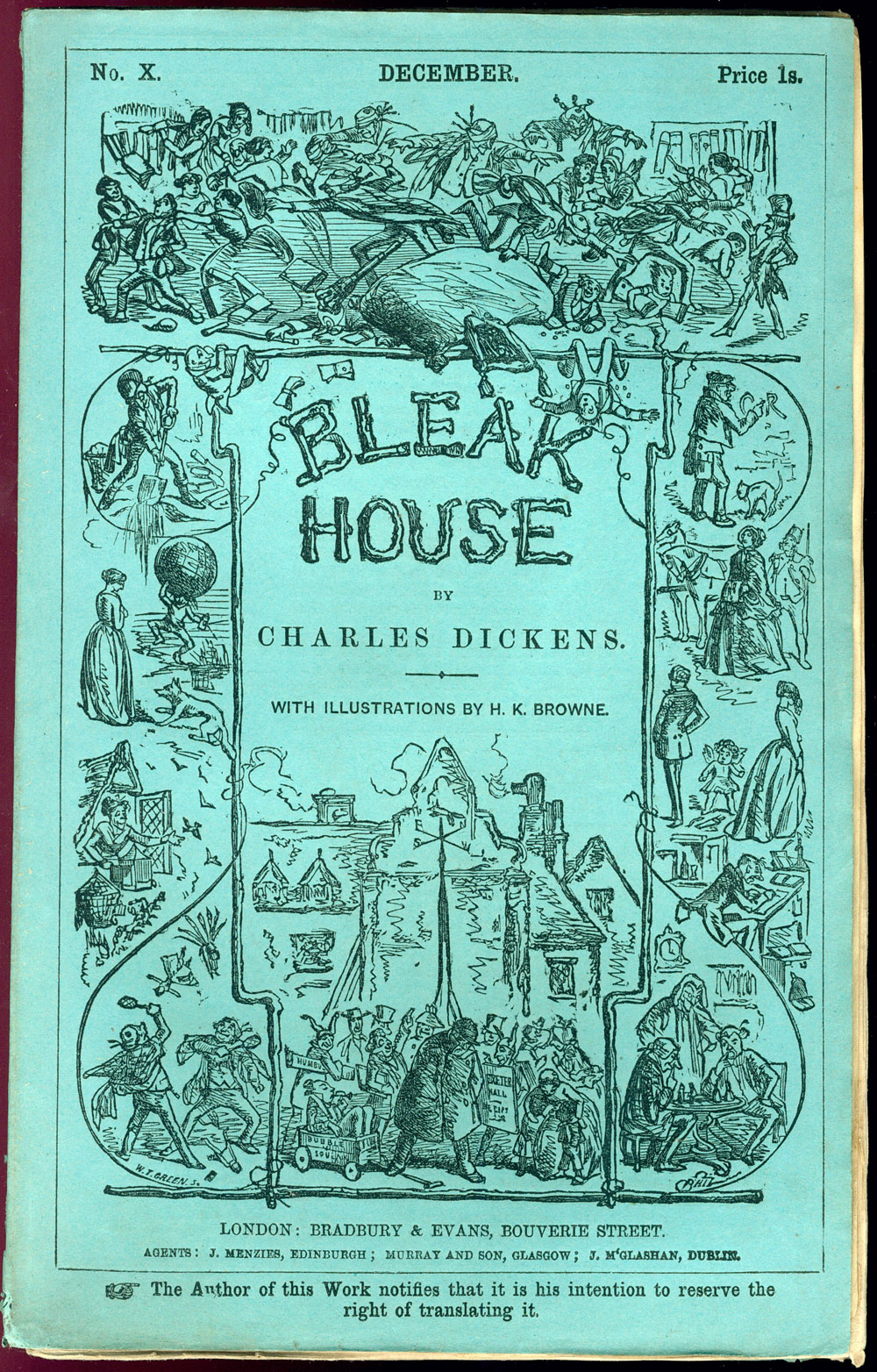
Charles Dickens, a century and a half since his death, remains one of the greatest authors of the Victorian, or any, era. Many students, upon encountering his novels in high school or college, continue to love them long after leaving the classroom. The Scholar staff, meanwhile, is pretty evenly split—there are Dickens devotees, and those who somehow have not read him yet. So, consider the following brief list of five memorable scenes merely a humble beginning. What we want to know is which Dickensian moments are among your favorites. Please share them in the comments section below.
Opening scenes, Great Expectations

The opening passages of Great Expectations linger in my mind like a hazy, unsettling dream. With evening approaching, the young Pip is exploring the overgrown churchyard where many of his relatives lie buried, when he hears a menacing warning—“Keep still, you little devil, or I’ll cut your throat”— from a “fearful man, all in coarse grey, with a great iron on his leg. A man with no hat and with broken shoes, and with an old rag tied round his head. A man who had been soaked in water, and smothered in mud, and lamed by stones, and cut by flints, and stung by nettles, and torn by briars; who limped, and shivered, and glared and growled; and whose teeth chattered in his head as he seized me by the chin.” Here is the convict Magwitch, an unforgettable character who, perhaps surprisingly, ends up playing an important part in Pip’s maturation.—Sudip Bose
Ending scene, A Christmas Carol

Every December, instead of going to a performance of The Nutcracker or some other holiday event, my family always went to see a stage adaptation of A Christmas Carol—a story not only about Christmas but about family and community, one that always leaves me feeling hopeful about the future. Who knows if this year we will actually be able to see a production, but either way, I will be reading the book. Spoiler alert here, if there is anyone left who has not read it, but my favorite moment of the novel comes at the end, when Scrooge wakes up and realizes that he’s alive and that it is Christmas. He yells down to a random kid to go buy the prize turkey—a moment of pure, unadulterated joy that never fails to make me smile. —Taylor Curry
Riots in France, A Tale of Two Cities

You probably had to read this novel in high school, and if so, perhaps it left you feeling neutral about the whole Dickens situation. That is how I felt at first—in fact, I would come to disparage it as not nearly as compelling as his other works, but a recent rereading changed my opinion. No one scene is my favorite, but I love all the riotous action in France. You feel the sense of chaos and agitation that helps ground the book in its historical context. It also helps, however, to have a basic understanding of the French Revolution and the Reign of Terror in order to appreciate the novel’s many subtleties. —Taylor Curry
Jarndyce and Jarndyce lawsuit, Bleak House

Bleak House is one of my favorite books of all time. At more than 900 pages, it can feel intimidating, but since it was first serialized as 20 monthly installments in the newspaper, its chapters are relatively easy to digest. Try to get a copy that has reproductions of the original illustrations, which add a lot to the story. I especially love the scenes depicting the chaotic, confusing, and completely ridiculous Jarndyce and Jarndyce lawsuit—a perfect example of how Dickens could balance the serious and the absurd. —Taylor Curry
Pip observes the firing of the Stinger, Great Expectations

Is there a happier moment in all of Dickens than when Pip, having walked down to suburban Walworth in London and crossed the drawbridge to the castle-home of his solicitor’s clerk, Wemmick, joins the clerk’s Aged Parent in observing the nightly firing of the castle’s gun? At the noise of the gun, known as the Stinger, the profoundly deaf Aged P “cried out exultantly, ‘He’s fired! I heered him!’” Wemmick’s tender devotion to his father when at home is all the sweeter for his hardheartedness when he is at work.—Robert Wilson

